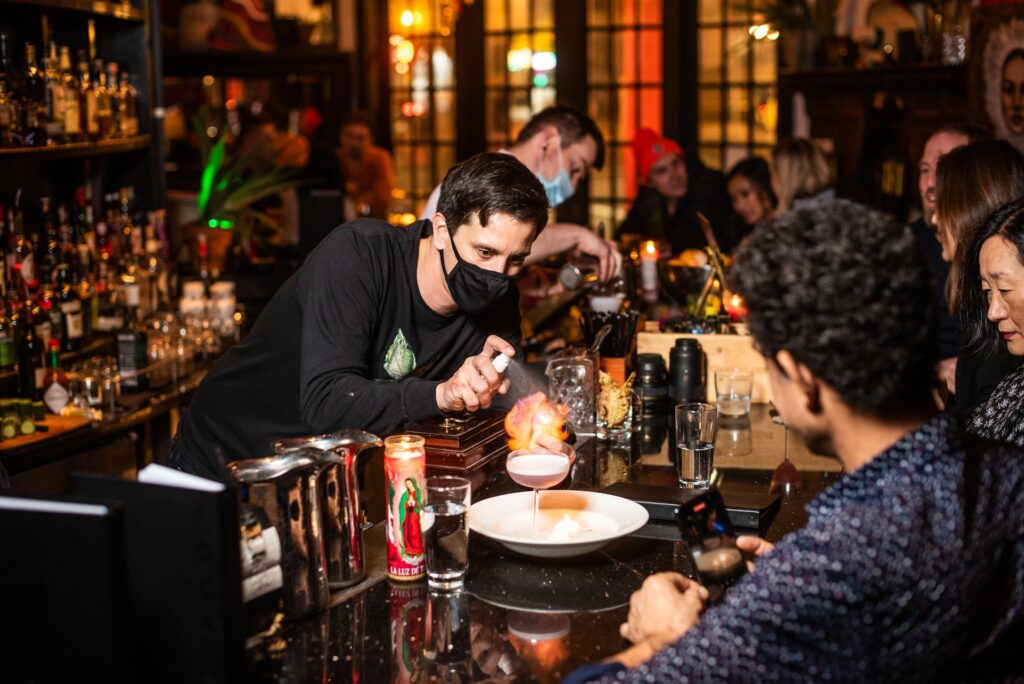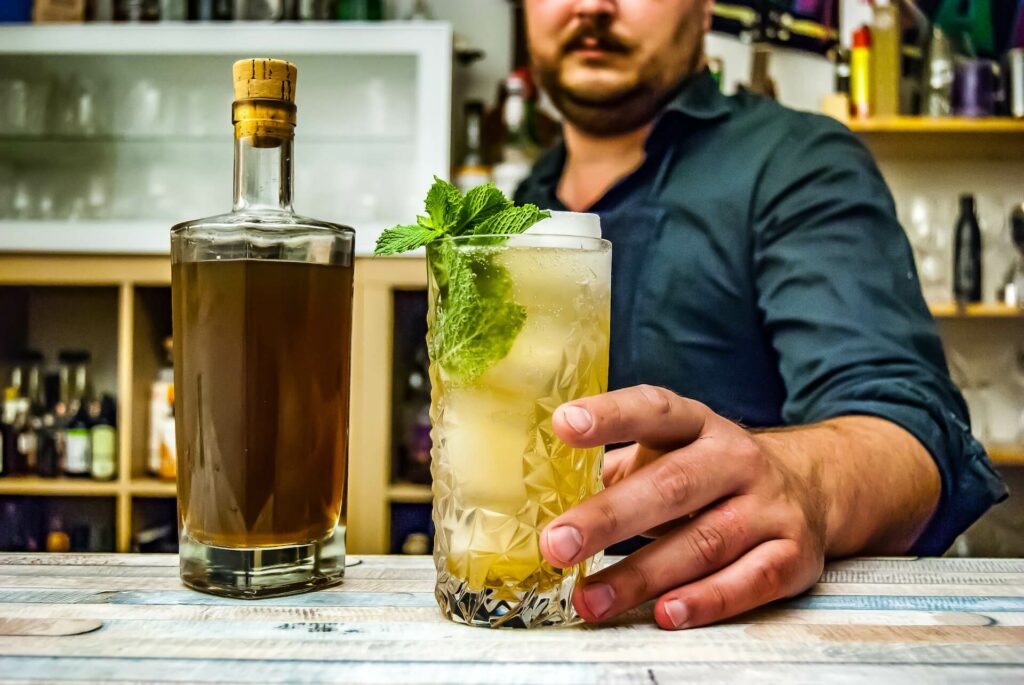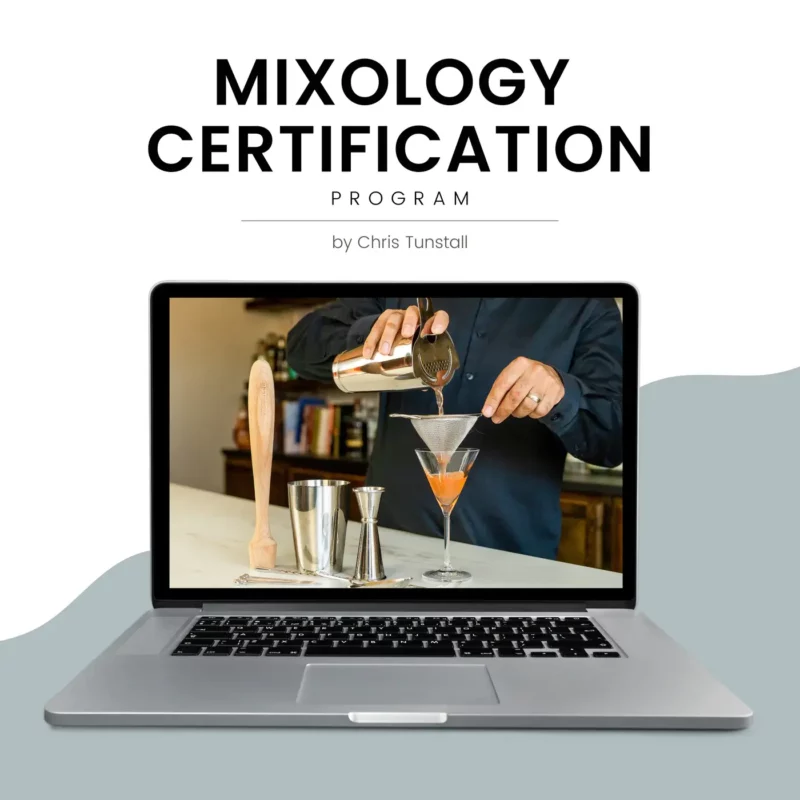Bartending is a popular and exciting profession that is growing at a rapid rate, with an increasing number of people looking to escape the corporate world and take up a career that’s a little more fun, and who can blame them?
Oftentimes the role of a bartender is underestimated, with some people assuming that it’s an easy job that anyone can do, but the truth is, it requires a unique set of skills to be successful in this field.
In this post, we’ll dive deep into the requirements needed to be a successful bartender and answer a common question that often comes up when discussing this topic: What qualifications do you need to be a bartender?
So whether you’re just starting out or looking to take your career to the next level, by the end of this post you’ll have a deep understanding of the qualifications and skills needed to succeed in the world of bartending.
What Qualification Do You Need To Be A Bartender?
The great thing about bartending is that bartenders do not need ANY traditional or formal qualifications, but hiring managers would prefer to see a high school diploma or GED.
This means that anyone can give bartending a try, but whether or not they will be successful in the role depends largely on their skill set and attitude.
That said, there are certain qualifications that can be beneficial for bartenders, such as completing bartending school or a mixology course, but they’re not mandatory.
👉 The BEST online bartending course: ABarAbove Mixology Masterclass
Bartending attracts people from a wide range of educational backgrounds, some have degrees in hospitality or business whilst others didn’t complete high school.

Education can certainly help in securing bartending jobs, but it’s more about a particular skill set as opposed to qualifications.
In most places, there is no legal requirement for bartenders to have any qualifications because it’s a role that is not particularly high stakes.
It’s not dealing with people’s finances or health which could be disastrous if mistakes are made, and instead, the worst-case scenario is messing up a customer’s order.
No biggie!
So long as the person is of legal age and follows the guidelines of serving alcohol responsibly, they can legally work as a bartender.
Why Do Bartenders Not Need Qualifications?
Simply put, bartenders don’t need any qualifications because no matter what the qualification is (so long as it’s not bartending related) it won’t be particularly helpful to their success in the role.
Whilst some degrees such as business and customer relations can certainly give bartenders an edge and can help when applying for senior positions, these qualifications don’t help with the core day-to-day responsibilities of a bartender.
Experience is EVERYTHING in this game, and no qualification can prepare you for being 10 people deep at a busy bar and being rushed off your feet.
Skill set, experience, attitude, character, and work ethic are much more important than any qualification in the bartending industry, which is why they’re just not needed or particularly desired.
Most bartenders have learned through on-the-job training, various workshops, and simply practicing and refining their skills over time.
Therefore a bartender may have very few qualifications and their resume may look very plain and boring, but they could be AMAZING bartenders that have an exceptional set of skills.
What Skills Do You Need To Be A Bartender?
While qualifications are not important to be a bartender, having a strong set of skills is EXTREMELY important and is the difference between successful bartenders and those that don’t make it.
Bartending is much more than just serving drinks and is about having the ability to make customers feel welcomed, comfortable, and satisfied with their experience.
Not everyone has the ability to do this, with those that are naturally quiet and introverted often finding bartending roles challenging.
Below are some of the skills needed to become a successful bartender:
Communication
Arguably the most important skill for a bartender to have is communication, great bartenders can speak to anyone at any time and are excellent at striking up conversations with people.
This is a skill that is highly desirable in the bartending world, hiring managers will look out for this when interviewing candidates as it’s incredibly valuable.
Bartenders need to be able to listen carefully, explain menu items, and make recommendations to customers, as well as communicate well with staff and management.
Problem-solving
Being a natural problem-solver is an important skill that bartenders should possess, they need to be able to think on their feet to come up with solutions to problems that may arise.
Frustrated customers, long queues at the bar, making the wrong drink, and forgetting orders are all just some of the problems that bartenders are faced with on a regular basis.

Those that are natural problem-solvers and can make effective decisions quickly will often do well in bartending roles.
Attention to detail
Having excellent attention to detail and a strong memory is another highly desirable skill for bartenders to have.
Many customers order multiple drinks at the same time which may all require different recipes to create, so it’s important to be able to remember the order without messing it up.
It takes practice and is often developed over time on the job, but having great attention to detail to start with is a big bonus.
Customer service
Bartenders interact with customers on a daily basis, so it’s crucial that they are able to provide a high level of customer service to ensure guests have a positive experience.
This means being friendly, approachable, and attentive to customers’ needs.
In a bar environment when alcohol is involved, mistakes and accidents happen regularly, so being able to defuse situations by having strong customer service skills is very important.
Time management
Bartenders need to be able to manage their time effectively, especially when working in thriving bars that are always busy.
It’s an essential skill that ensures bartenders keep on top of their workload without becoming swamped.
This includes being able to multitask, work well under pressure, and prioritize tasks based on their importance.
Bartending School Qualifications
Most formal and traditional qualifications are not needed to become a bartender, but something that will set you apart and is highly desirable in the industry is a bartending school qualification.
This is a certification that you have successfully graduated from a bartending school, which shows hiring managers that you already know the basics and have some experience behind a bar.
Having this qualification sets you apart from candidates who have no experience and shows a level of commitment that most are not prepared to give.
If you’ve never worked in the bartending industry before but are keen to get in, I would highly recommend attending a bartending school and becoming certified.
As a bar manager myself in the past, I would look for candidates that had this certification as much of what is needed to work in a bar is taught at bartending school.
Another qualification you may need depending on your location is a Responsible Service of Alcohol (RSA) Certificate, which shows that you’ve completed a course on how to serve alcohol responsibly.
Finding A Job Without Any Qualifications Or Experience
Contrary to popular belief, finding a bartending job without any prior experience or recognized qualifications is much easier than you might think (for some people).
Those who are confident, high-energy, and excellent communicators and can get this across in an interview stand a good chance of securing a job.
Initially, it may be tough to secure interviews, but if you do feel that you have the skills to become a bartender then I would recommend handing your resume out IN PERSON.
Firstly, this shows that you’re a confident person who is proactive in your job search, but it also gives you a chance to showcase your personality to the bar manager.

Giving off a good first impression before you’ve even applied for the role is a huge advantage, so don’t be afraid to ask the bar manager if they are hiring for bartending positions.
Another effective way to find a bartending job without having experience is to offer to volunteer as a helping hand for a couple of shifts.
This way the bar manager will get to see what you’re capable of and you can show off your skill set which will drastically increase your chances of becoming hired.
If you don’t want to volunteer or hand resumes in person but still want to get into the industry, attending a bartending school and becoming certified is a great way to do so.
Bartending School teaches you everything you need to know about working in a bar, from setting up, stock management, laws and regulations around alcohol, and much more.
With this qualification on your resume, you’re at a big advantage over those with no experience, so it’s certainly worth it for many aspiring bartenders.
Wrapping Up
To wrap up, you don’t need ANY qualifications to become a bartender, it’s a profession that values a person’s skillset over qualifications, which is why there are people from all walks of life working as bartenders.
It’s true that some qualifications will help, but if you’re someone with a strong skill set that is desirable in the bartending industry then you likely won’t have difficulty finding a job.
If you’re someone who didn’t finish high school or doesn’t have a stacked resume, don’t let this put you off applying for bartending roles.
The barrier for entry is low in this profession, and even if you don’t have the skills to be a bartender right now, they can be learned on the job.
So go out there and apply for that bartending job you want with confidence and don’t let a lack of qualifications dampen your spirits.
Get Certified🍸
Take your mixology game to the next level! With this advanced mixology course, you’ll learn not just to follow recipes, but to create them.
HD Videos
Cheat Sheets
Earn Your Certificate



